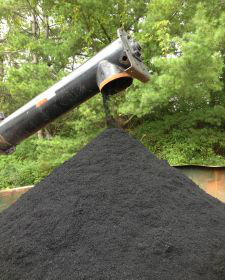
This program oversees the management of residual materials, industrial and municipal wastes with the potential to be recycled. Examples of residual materials include biosolids, septage, short paper fiber, wood ashes and water treatment residuals. In Vermont, residuals management activities must be authorized via solid waste facility certification (biosolids), sludge management plans, or certificates of approval (short paper fiber, wood ash, & imported EQ biosolids). In addition, the program provides support for emerging contaminant regulatory efforts across the Agency, with a focus on protecting Vermonters from exposure to per- and polyfluoroalkyl substances (PFAS).
Beneficial Reuse - residual materials that meet specific criteria established in the Vermont Solid Waste Rules may be land applied for agronomic value. After obtaining a Solid Waste Facility Certification, sludges and septage that meet specific pollutant limits and that are treated to US EPA biosolids standards for pathogen and vector attraction reduction, may be applied to the land under a site-specific permit or, after addition pathogen treatment, distributed to the public as Exceptional Quality (EQ) biosolids. Prior to importing EQ biosolids to Vermont, a Certificate of Approval must be obtained.
Septage Haulers operating in Vermont (pumping and/or disposing) must pay a fee of $.01 per gallon. Fees are due quarterly and paid through the Electronic Reporting System.
*** NEW***
- Vermont Residuals Interim Strategy for Mitigating PFAS Risks Associated with Residuals Management- Effective April 1, 2024
- Vermont State-Wide Septage Capacity Report and ArcGIS Model - May 2024
